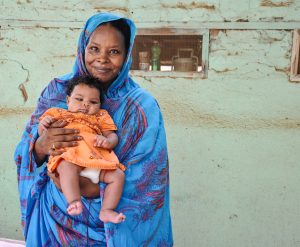Why Malnutrition?

Malnutrition overall remains an immense and universal problem, with at least 1 in 3 people globally experiencing malnutrition in some form. In developing countries, undernutrition—including micronutrient deficiencies, stunting and wasting—are now being compounded by overweight and obesity, creating a double burden of malnutrition. Despite considerable progress in global efforts to reduce malnutrition in the last decade, many countries still face significant challenges in achieving international nutrition targets due to rising food insecurity, climate change and state conflict.
“Nutrition is both a maker and a marker of development. Improved nutrition is the platform for progress in health, education, employment, empowerment of women and the reduction of poverty and inequality, and can lay the foundation for peaceful, secure and stable societies.”
Ban Ki-moon, United Nations 8th Secretary General, a message for the Scaling Up Nutrition (SUN) Movement Strategy and Roadmap (2016-2020).
Malnutrition often represents an imperceptible barrier to the achievement of the Sustainable Development Goals. It occurs not just from a lack of sufficient and adequately nutritious and safe food, but also from a host of intertwined factors linking health care, education, water, sanitation and hygiene, access to food and resources, women’s empowerment and more.
Malnutrition can also have serious lifelong repercussions. Poor nutrition in the first 1,000 days of a child’s life—from conception to their second birthday—can lead to prolonged health and social challenges that are devastating and difficult to reverse. During this vital period, children require balanced quality and quantity of food for appropriate physical and cognitive growth. Without this, they are more likely to get sick and possibly die from infectious disease, perform poorly in school, be less productive and earn less than their peers in adulthood—perpetuating an intergenerational cycle of poverty and malnutrition. In effect, the stunting of children can lead to the stunting of nations.
Targeting small changes—which have already proven to be effective—can make a significant difference collectively. The promotion of exclusive breastfeeding, health and nutrition education for mothers, micronutrient supplementation for mothers and children, agricultural interventions to provide diverse and nutritious foods and legislation on the production of fortified staple crops are only a few potential interventions that can address malnutrition. For countries to be able to promote and implement such interventions, they sometimes need the support of external experts and stakeholders to eliminate bottlenecks to developing effective nutrition policy and programmes. The SUN Movement and projects like Maximising the Quality of Scaling Up Nutrition Plus (MQSUN+) provide a support mechanism for developing countries to navigate the numerous stakeholders, multiple sectors and various levels to raise nutrition in their national agenda.

